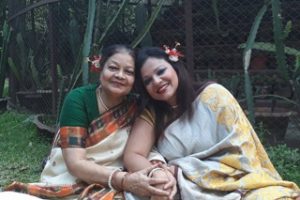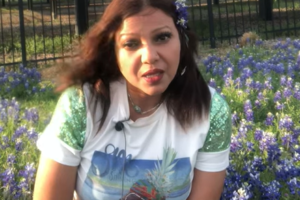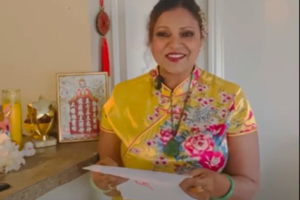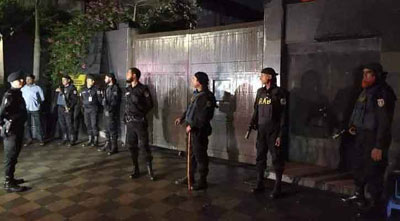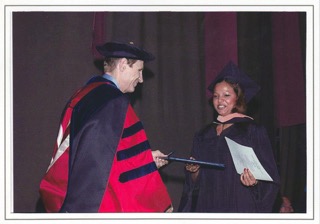The third and largest phase of the national election began Tuesday (April 23) morning with polling in 117 seats across 13 states and two Union Territories in India.
Among the states are Gujarat and Kerala, where voting is being held in all seats. Half of Karnataka is also voting from this morning.
Among the star candidates are BJP chief Amit Shah, who is contesting from Gujarat’s Gandhinagar and Congress chief Rahul Gandhi from Kerala’s Wayanad.
This round poses a special challenge for the BJP, which is looking to increase its tally. Of the 117 seats, it won only 66 in 2014.
“I can say with surety that the voter ID is much much more powerful than an IED,” PM Modi said after voting.
The last of the seven-phase election will be held on May 19, the counting is scheduled for May 23.
Here are the top 10 points on Phase 3 of Lok Sabha Elections 2019:
Prime Minister Narendra Modi met his 98-year-old mother and took her blessings in Gandhinagar Tuesday morning. He then traveled from Gandhinagar to Ahmedabad in an open jeep, interacted with people before going inside the polling booth to cast his vote.
“The weapon of terrorism is IED, the strength of democracy is voter ID. I can say with surety that the voter ID is much much more powerful than an IED,” PM Modi said.
Besides 26 seats in Gujarat and 20 in Kerala, voting is being held for four seats in Assam, five in Bihar, seven in Chhattisgarh, 14 each in Karnataka and Maharashtra, six in Odisha, 10 in Uttar Pradesh, five in West Bengal, two in Goa, and one each in Jammu and Kashmir and the Union Territories of Dadra and Nagar Haveli and Daman and Diu.
Ten seats of Uttar Pradesh, where polls are on today, will decide the electoral fortunes of several key leaders, including Samajwadi Party patriarch Mulayam Singh, his nephews Dharmendra Yadav and Akshay Yadav, senior party leader Azam Khan and the BJP’s Jaya Prada. The BJP had won seven of the 10 seats in 2014, while the SP bagged three.
The polling in Tripura East constituency, which was postponed in the last round by the Election Commission in view of the law and order situation, is being held in this phase.
In a first, election for a single parliamentary constituency in Jammu and Kashmir is being held in three phases. Today is the first phase of polling in the terror-hit Anantnag seat. The constituency, spread over four districts of south Kashmir, is considered a huge security challenge and more than 30,000 security personnel have been deployed for today’s polling. Polling began on a dull note with residents in most parts of the district staying indoors in the first hour of voting. Former chief minister Mehbooba Mufti is contesting from Anantnag.
BJP chief Amit Shah, who replaced LK Advani as the party nominee from Gandhinagar, is among the 370 candidates vying for the 26 Lok Sabha seats in Gujarat. All seats were won by the BJP in the last election, but the Congress, buoyed by their good showing in the 2017 assembly election, is ready for a tough fight.
Rahul Gandhi’s decision to contest from Kerala’s Wayanad is seen to have added zest to the Congress, which is locked in a battle with the ruling Left for the state’s 20 seats. The BJP is hoping to open its account in the state, piggybacking on the controversy over women’s entry to the Sabarimala shrine.
The Congress chief’s candidature from Wayanad, a seat dominated by the tribals and Christians, had drawn some of the sharpest barbs from the BJP, which maintained that he was not comfortable contesting from a Hindu-majority area.
Of the 50 seats not under BJP control, the Congress and its alliance partners had won 27 in the 2014 election. The rest had gone to other opposition parties and Independents.
There were complaints of faulty electronic voting machines in parts of Kerala and Assam. Irregularities and violence were reported from West Begal’s Malda. With this phase, polling will be over in six states and 302 of the 542 Lok Sabha seats. The rest of the seats will vote in the four remaining phases till May 19.





